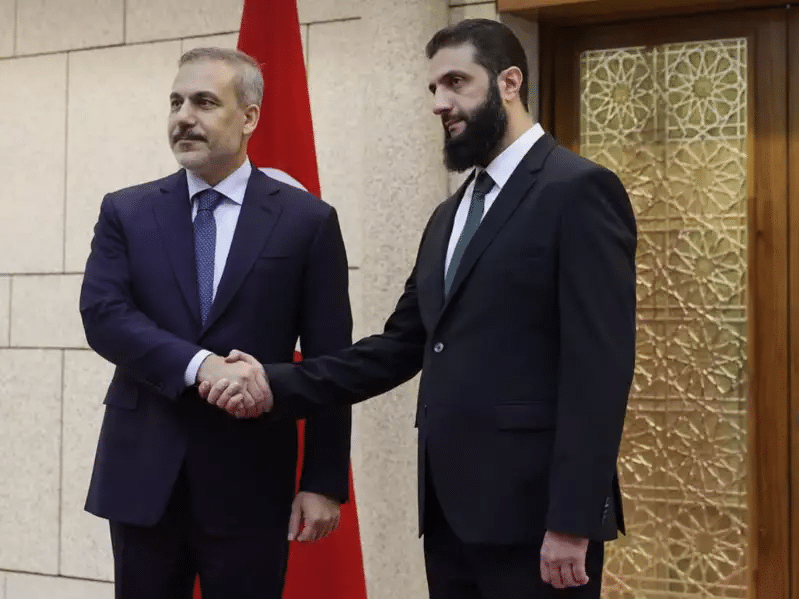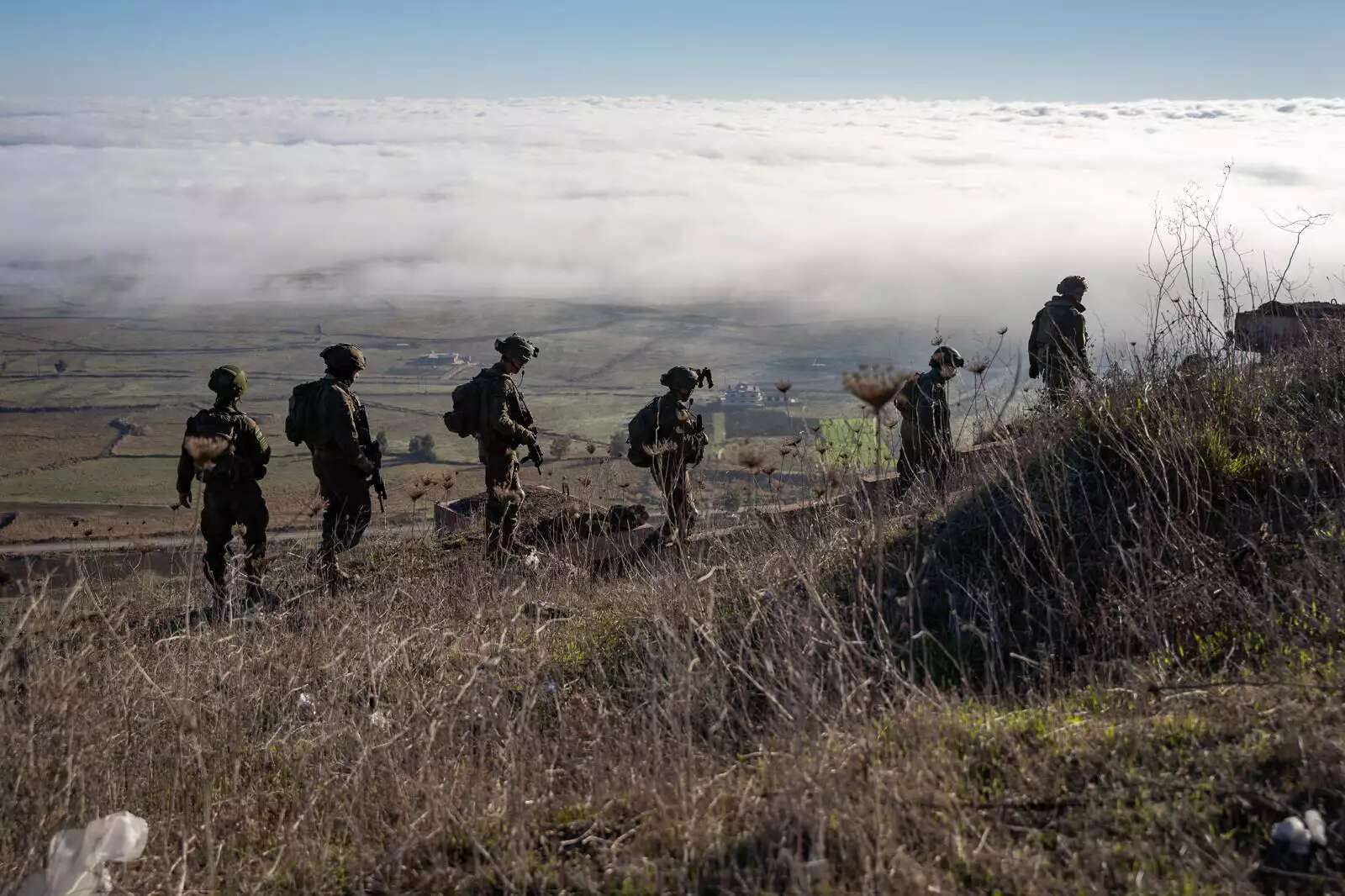When the new leader of Syria planned an attack on Israel
The coming months will reveal whether Mohammad al-Julani remains the terrorist he once was (albeit now in a suit) or whether his diplomatic charm offensive – drawing Western diplomats to him – has substance.
Yoav Limor
Israel Hayom
Dec 26, 2024
![Turkish Foreign Minister Hakan Fidan meets Leader of new Syrian administration, Ahmed al Sharaa, in Damascus, Syria on December 22, 2024. [Arda Küçükkaya - Anadolu Agency]](https://i0.wp.com/www.middleeastmonitor.com/wp-content/uploads/2024/12/AA-20241222-36553699-36553698-HAKAN_FIDAN_AHMED_AL_SHARAA_MEETING_IN_DAMASCUS-1.jpg?fit=1200%2C800&ssl=1)
New look al-Julani (R) meets with Turkish Foreign Minister Hakan Fidan in Damascus, Syria on December 22, 2024.
Over the past two weeks, Israel has been pondering whether the metamorphosis of Syrian rebel leader Abu Mohammad al-Julani (Ahmed al-Sharaa) is genuine or merely part of a sophisticated deception campaign.
On the surface, everything points to the former. Al-Julani has traded military fatigues for tailored suits, replaced militant rhetoric with promises of unity and reconciliation, and shifted from jihadist military operations to messaging about peace. Yet he remains the leader of al-Qaeda's Syrian branch and clings to the name "al-Julani," a nod to his origins in the Golan Heights and perhaps a hint at his future ambitions.
For now, the world appears captivated by al-Julani's rebranding. Diplomatic delegations arrive in and out of Damascus at a dizzying pace, including representatives from major global powers. The US, for instance, has quickly announced its intention to lift the personal sanctions imposed on him during the Syrian Civil War over a decade ago. In Europe, too, al-Julani's metamorphosis has been warmly received.

However, moderate Arab leaders remain wary, fearing they could be his next targets.
The US has also reportedly urged Israel to give al-Julani a chance, encouraging dialogue. Israel has compelling reasons to consider this: reducing potential threats along its northeastern border, curbing Turkey's dangerous influence on Syria's future, and ensuring that Iran stays out of Syrian affairs.
The question is how willing al-Julani might be to engage. Three scenarios emerge:
- Outright refusal: Al-Julani could decline, albeit politely, offering various excuses—such as Israel's continued occupation of the Golan Heights or ongoing conflicts in Gaza.
- Acceptance: This seems highly unlikely for now.
- Partial engagement: Al-Julani might secretly flirt with the idea, seeking to extract maximum advantage, such as direct or indirect Israeli support against his enemies. These include Iran and its proxies on one side and ISIS and its offshoots on the other, which have already accused al-Julani of betraying Islam.
The potential for mutual benefit is significant: al-Julani could secure his regime, while Israel might mitigate threats.
For now, the IDF maintains control over the Syrian side of Mount Hermon and adjacent areas in the demilitarized zone east of the international border. The former is essential for identifying, monitoring, and neutralizing threats. The latter, however, is a potential quagmire.
Initially, Syrian Golan residents welcomed the IDF's presence, but some have recently begun expressing discontent, including open protests. Meanwhile, the international community is likely to demand Israel's eventual withdrawal to its borders—a sentiment already heard in UN corridors.

IDF forces in Syrian territory.
It's improbable that Israel's presence will be permanent. Once the fortified border barrier is completed, IDF forces—minus those on Mount Hermon—are expected to withdraw. Until then, Israel is working to establish relationships with local populations and perhaps with the new regime in Damascus. At the same time, it is attempting to assess al-Julani and his entourage: mapping key figures, power groups, and military capabilities.
Decades of intelligence on Syria have become obsolete due to the regime change in Damascus and the destruction of Syria's military capabilities. Israel now faces the daunting task of rebuilding this knowledge from scratch—a formidable intelligence and operational challenge.
A final note on al-Julani: about a decade ago, during the height of Syria's civil war, Israel received intelligence about a planned infiltration attack by al-Julani's men from the Syrian Golan into a kibbutz in the Israeli Golan Heights. This intelligence enabled the IDF to thwart the attack, which could have killed Israeli civilians. Al-Julani himself approved the operation.
The coming months will determine whether he remains a terrorist in a suit, or if he has transformed into a figure akin to Anwar Sadat.
No comments:
Post a Comment